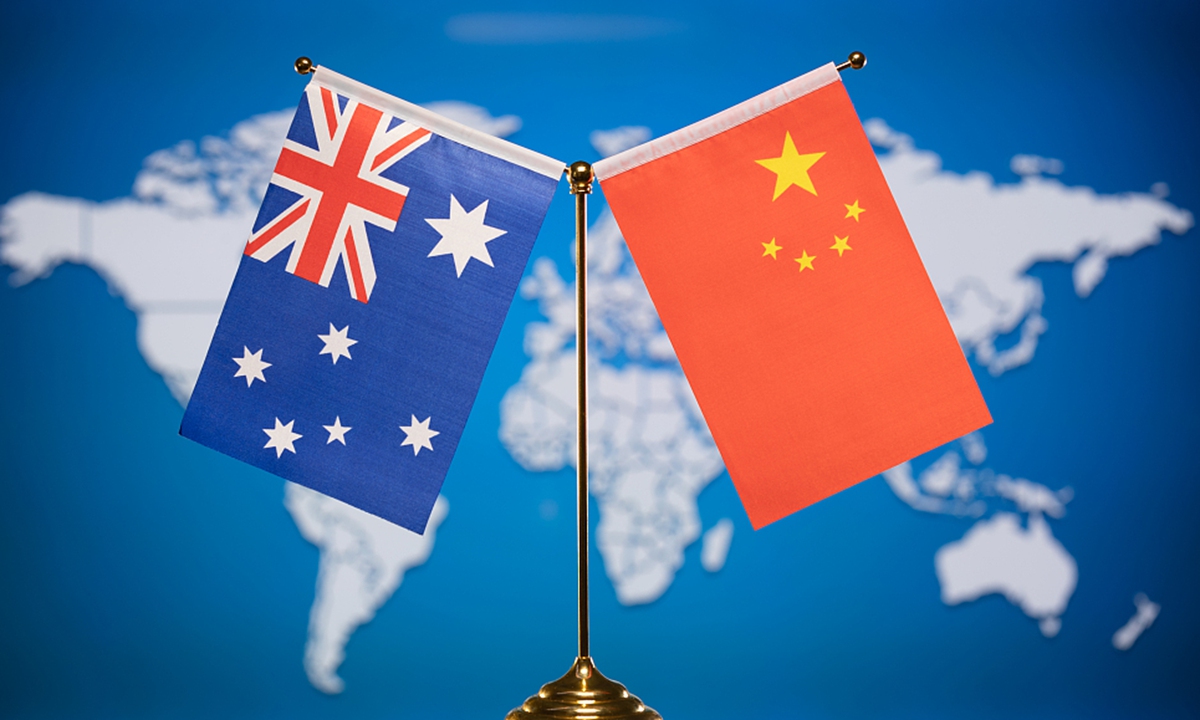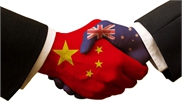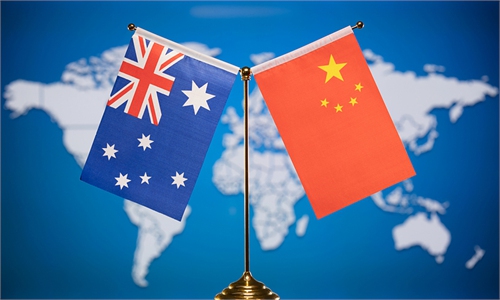
China-Australia Photo: VCG
Chinese Vice Foreign Minister Ma Zhaoxu will visit Australia and Fiji this week at their invitation, the Chinese foreign ministry confirmed at a regular press briefing on Monday, saying Ma will hold the new round of political consultation between the officials of the foreign ministries of China and Australia.
Experts said Ma's visit to Australia, following talks between the two countries' foreign, defense and commerce ministries, showed that China and Australia are resuming communication channels in different areas and levels.
Chen Hong, director of the Australian Studies Centre at East China Normal University, told the Global Times on Monday that Ma will negotiate some specific issues with the Australian side in response to the consensus reached by the two countries' leaders last year on the sidelines of the G20 meeting in Bali, including paving the way and preparing for the future mutual visit of higher-level officials from China and Australia.
China has issued an invitation "in principle" for Australian Prime Minister Anthony Albanese to visit Beijing, and the trip could take place around September and October to coincide with the 50th anniversary of the first visit to China by an Australian prime minister, South China Morning Post reported on Tuesday. According to Reuters, Albanese said on Wednesday he would accept the invitation to visit China once he receives it.
At the same time, however, Albanese told media on Sunday that its AUKUS agreement with the US to purchase a fleet of nuclear submarines for delivery in early 2030 would go ahead and will not be affected by who wins the US 2024 election.
Australia's attitude is very clear: it will improve ties with Beijing while keeping its cooperation going with Washington, in the hope that such cooperation will not affect China-Australia relations, especially in the economic and trade sectors, Zhou Fangyin, a professor at the Guangdong Research Institute for International Strategies, told the Global Times on Monday.
"As an independent country, Australia has the right and freedom to form an alliance. But China will never allow such an alliance to treat it as an ultimate enemy, or to harm China's interests. Albanese should have the wisdom to find the 'balance' between taking care of his Western alliances and stabilizing ties with Beijing," said Chen.
On Ma's trip to Fiji, Chen explained that Fiji's new government, influenced by the West, has made some policy shifts to cater to the West's narrative at the cost of its ties with China, including the suspension of China-Fiji police cooperation and changing the name of Taipei Trade Office in Fiji.
In late March, Fiji has renamed Taiwan region's representative office as the "Trade Mission of the Republic of China (Taiwan)", changing it from the previous name of Taipei Trade Office, which was set by the then ruling Fiji administration in 2018. Chinese foreign ministry said it opposed any attempt to create "two Chinas" or "one China, one Taiwan".
As the US continued to exert its influence in the South Pacific region, Chen said Ma's visit to Fiji showed that China will always develop relations with countries in the South Pacific region with an attitude of frankness, equality and assistance for mutual benefit and that the countries concerned should not be provoked or deluded by certain countries.



